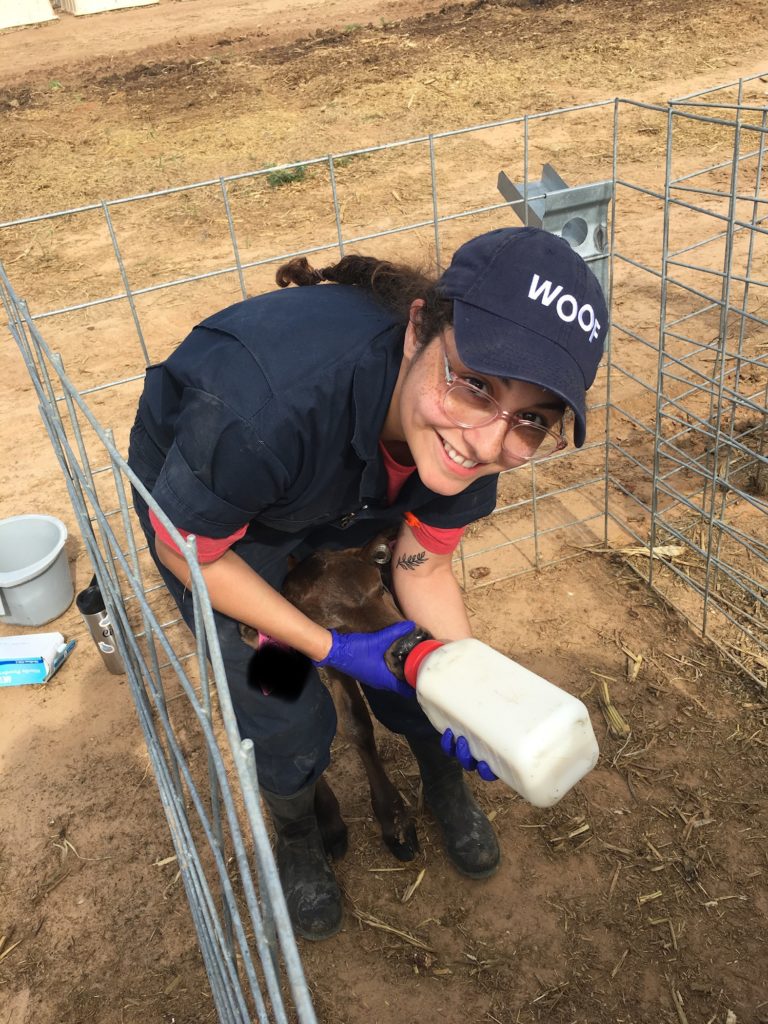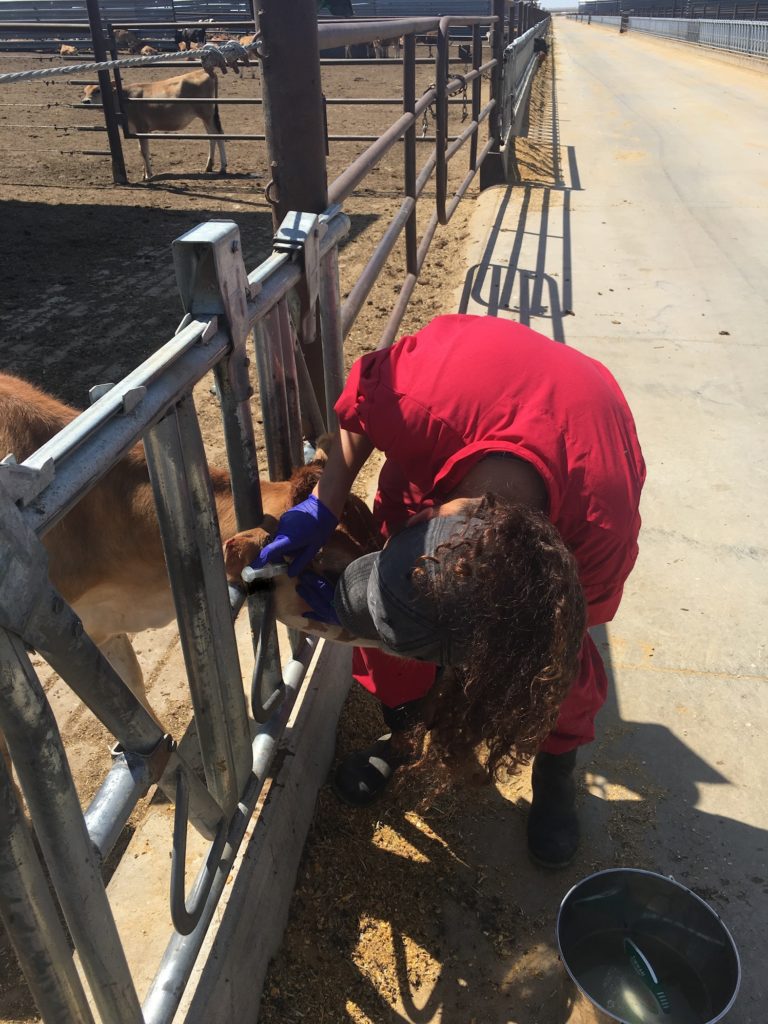VERO Internship Introduces Student to Dairy Cattle Medicine
Story by Dorian Martin
Asucena Ochoa’s first experiences with cattle were during her Houston high school’s agriculture classes.

Now, however, after participating in Texas A&M University’s innovative Veterinary Education, Research and Outreach (VERO) Food Animal & Rural Practice Summer Internship Program, Ochoa is considering pursuing a career working in food animal production or in a rural practice that serves both large and small animals.
The VERO internship program, which is a partnership between Texas A&M’s College of Veterinary Medicine & Biomedical Sciences (CVM) and West Texas A&M University in Canyon, gives students a chance to explore another side of the veterinary profession.
Interns focus their studies on working with either beef cattle, swine, or dairy cattle in the ideal setting, with VERO’s close proximity to a significant percentage of the beef industry; approximately 30 percent of the nation’s feed beef cattle are raised within 200 miles of Canyon.
Perfect Opportunity
For the second-year veterinary student, this opportunity was exactly what Ochoa was seeking.
“I didn’t have as much experience or exposure to livestock as I would have liked,” she said. “Coming out of high school, I didn’t have a definitive answer about what I wanted to do with my life.”
She decided to attend Texas A&M as an undergraduate and started taking agriculture classes.
“It wasn’t until my freshman or sophomore year of college that I began to get serious about veterinary medicine, and I started doing internships, getting more experience, and shadowing veterinarians around College Station,” Ochoa said. “I got really passionate that this is what I wanted to do with my life.”
Those experiences led her to earn a bachelor’s degree in animal sciences with a minor in chemistry and, ultimately, to veterinary school at the CVM.
Milking an Internship
Though she knew she wanted to be a veterinarian, Ochoa still wanted to explore her options regarding the type of medicine she would practice. That’s where the VERO internship comes in.
“Being from Houston, I didn’t feel like I had as many opportunities to get hands-on experience with veterinarians,” she said. “So when Dr. (Dan) Posey (a clinical professor and VERO academic coordinator) came to the CVM and talked to us about this summer program, I really wanted to see if I could come out to the Panhandle and experience what it’s like to be out in a rural practice.”
She decided to focus her internship on dairy cattle because she knew the least about these animals.

Two weeks of her internship were spent at a Dalhart calf ranch, while another four weeks were at Dimmit Muleshoe veterinary clinics. These experiences gave Ochoa the opportunity to apply what she learned in the classroom, including suturing, drawing blood and assisting with surgery.
“It’s been really eye-opening and a great opportunity,” she said.
The Aggie was especially impressed by the systemic approach and the various factors that are taken into account when a veterinarian takes on each case. She also noticed the strong teamwork and communication that was necessary to work in these practices.
“It would be impossible to do everything yourself when working with large animals,” she said.
Moving Forward
After this experience, Ochoa is still weighing her career options.
“The internship is helping me make a better decision about what I want to do, instead of feeling as if I am limited because I’ve only had small animal experiences,” she said.
Ultimately, Ochoa would recommend the VERO summer internship program to other students.
“It was a great learning opportunity,” she said. “Many going into veterinary school think they know what they want to do, but they should consider other options.”
###
For more information about the Texas A&M College of Veterinary Medicine & Biomedical Sciences, please visit our website at vetmed.tamu.edu or join us on Facebook, Instagram, and Twitter.
Contact Information: Jennifer Gauntt, Interim Director of CVM Communications, Texas A&M College of Veterinary Medicine & Biomedical Science; jgauntt@cvm.tamu.edu; 979-862-4216


